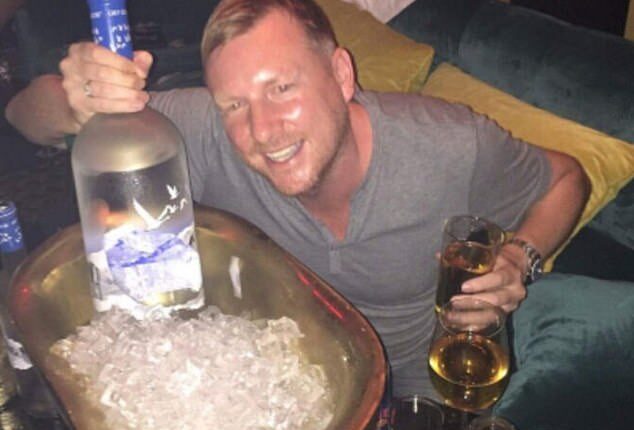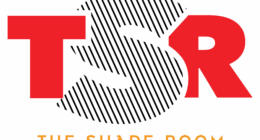The drug-running Australian pilot killed in a plane crash in Brazil is believed to have diced with death up to 30 times previously as he criss-crossed the Atlantic in his tiny single-engine kit aircraft with a cargo of cocaine.
Timothy James Clark, 46, died when his plane crashed around 1.30pm on September 14 as he flew over Coruripe, on the Alagoas coast in Brazil’s north-east.
Melbourne-born Clark was the sole occupant found in the wreckage, surrounded by Australian snacks and 200kg of SpaceX-branded bricks of cocaine.
His father was unaware of the death of his South African-based son – known as The Broker online and renowned for his wild playboy lifestyle – until the Daily Mail broke the news to him, 48 hours after it was first reported.
Clark’s body remained unclaimed in Brazil for weeks, but his family have now been in touch with local officials to arrange its return to Australia for a funeral in Melbourne.
Records show Clark purchased his Sling 4 light aircraft three years ago and had registered it under Mindframe Creations with South Africa’s Civil Aviation Authority.
The aircraft had flown about 1,200 hours since he bought it, with each hazardous Brazil-to-South Africa crossing taking roughly 40 hours to complete in the tiny plane.
Insiders told South African news site the City Press they estimated Clark made anywhere up to 30 transatlantic trips, which could have netted him more than $22million.

Timothy James Clark lived the high life before winding up dead in a plane crash linked to a massive international drug ring

Timothy James Clark enjoyed the company of women
With just a single-engine, the plane would have taken at least 13 hours to cross the Atlantic by the shortest route from Brazil to Africa.
Any engine faults over the sea would have proved catastrophic for Clark, with no secondary engine to rely on, nowhere to land and little hope of rescue.
The aircraft had also been fitted with additional internal fuel tanks for the trip, with the extra weight, including his 200kg cargo of coke, pushing the plane beyond its standard operational limits.
Clark would then have to hop from bush airstrip to bush airstrip down the west coast of Africa, often run by mining companies, to deliver the coke without drawing the attention of authorities.
At the time of his death, Clark was believed to be on the first stage of another drug-running mission before embarking on the dangerous transatlantic trafficking run.
But it’s been revealed the Australian pilot had been loved by locals in South Africa for his good nature and had been regarded as all-round-nice guy.
Insiders claimed the scruffy-haired Aussie would roll up in his Sling, joke with locals and have his aircraft serviced at Sling’s Alberton factory in Johannesburg, like any other hobby pilot.
Few knew Clark’s ‘hobby aircraft’ was being used to smuggle large quantities of cocaine.

Authorities found 200kg of drugs in the wreckage of the plane fuselage
The Daily Mail revealed that at the time of his death, Clark was the director and secretary of a number of investment businesses that operated in Australia and Africa over the past few decades.
The former high-flying stock market trader, who used the nickname The Broker online, owned companies including Stock Assist Group Pty Ltd and Gurney Capital Nominees Pty Ltd (which both remain registered with ASIC), TJC Nominees Pty Ltd (which was cancelled in July), and Bluenergy Asia Pty Ltd and Tick-Tack-Toe Pty Ltd (deregistered in 2021 and 2018 respectively).
Stock Assist Group owned millions of dollars’ worth of shares in Western Australian mining company Victory Mines and underwrote millions more in Classic Minerals, according to stockholder reports.
It is understood Brazilian police had been trying to keep up with Clark’s low-flying, transponder-free aircraft for some time and were closing in on him when it crashed.
Clark’s plane hit the ground about 11 hours’ flying time from the Amazon basin, a major cocaine trafficking route to Europe.
Testing identified the drugs found onboard as cocaine, which were wrapped in bricks carrying SpaceX branding, the name of Elon Musk’s spacecraft and rocket division.
Local law enforcement estimated the seizure was worth around nine million Brazilian Real (around AU$2.5million) to the shipment’s drug lords.
But while it remains unclear where the illicit substances were intended to be sold, 200kg of cocaine would have an estimated street value of $80million in Australia.

Clark’s wrecked plane in Brazil

Tests confirmed the substance to be cocaine and carried Elon Musk’s SpaceX branding
According to South African press, Clark had crossed the Atlantic in the Sling aircraft countless times, offloading cargo in Namibia and South Africa before topping up in Brazil for another run.
Three of the Sling’s four seats had been ripped out to make way for long-range fuel tanks.
One source told the publication Clark registered the Sling on South Africa’s Civil Aviation Authority’s books under Mindframe Creations, a company whose director was now uncontactable on all listed numbers.
‘If you saw Clark on the street, you wouldn’t have thought for a moment that he had much money,’ a source claimed.
‘He was a typical, somewhat scruffy Aussie with messy hair and old clothes, but then he would wear an extremely expensive pair of shoes.
‘He spoke with relish about how he enjoyed the aircraft while flying around the world. None of us suspected he was actually involved in drug smuggling.’
Clark’s plane had also been spotted in Namibia, with sources claiming he visited Mozambique as well, which is another recognised drug pipeline route.
He was also known to operate a second aircraft for ‘legitimate’ flights – a Beechcraft King Air 350.

Timothy James Clark shared his experiences on a popular travel site
It has since been reported that Clark may have been involved with sinister characters both in Australia and overseas.
His father revealed that his son had been living in South Africa for years.
Bellingcat linked Clark to several underworld figures, including a known associate of high-ranking members of the Kinahan cartel.
That associate, who cannot be named for legal reasons, is currently facing charges in Western Australia for importing a multimillion-dollar cocaine shipment.
The operation involved cocaine flights from South America to Australia, mirroring Clark’s routes.
The alleged drug dealer is also a South African resident.
Evidence uncovered by Bellingcat, including flight records and communications, suggested Clark collaborated with the alleged dealer on drug runs, placing him within the cartel’s supply chain.
A 2018 restaurant review posted by Clark included a photo that showed the pair dining together in the Zimbabwean capital of Harare, Bellingcat reported.
The Kinahan cartel is a major Irish transnational organised crime syndicate alleged to be the most powerful in Ireland and one of the largest organised crime groups in the world. It is also established in the UK, Spain, and the United Arab Emirates.
Clark reportedly frequently used Tripadvisor to post reviews, including about chartering a catamaran in Bali and the VIP service at a Saint-Tropez bar where he spent €5,500 on ‘ultra top-shelf’ drinks.
The publication claimed Clark also left Tripadvisor reviews for two Zimbabwean venues – the Amanzi Lodge and Thetford Estate – which Christy ‘Dapper Don’ Kinahan later attended, according to the cartel leader’s own Google Maps profile.








